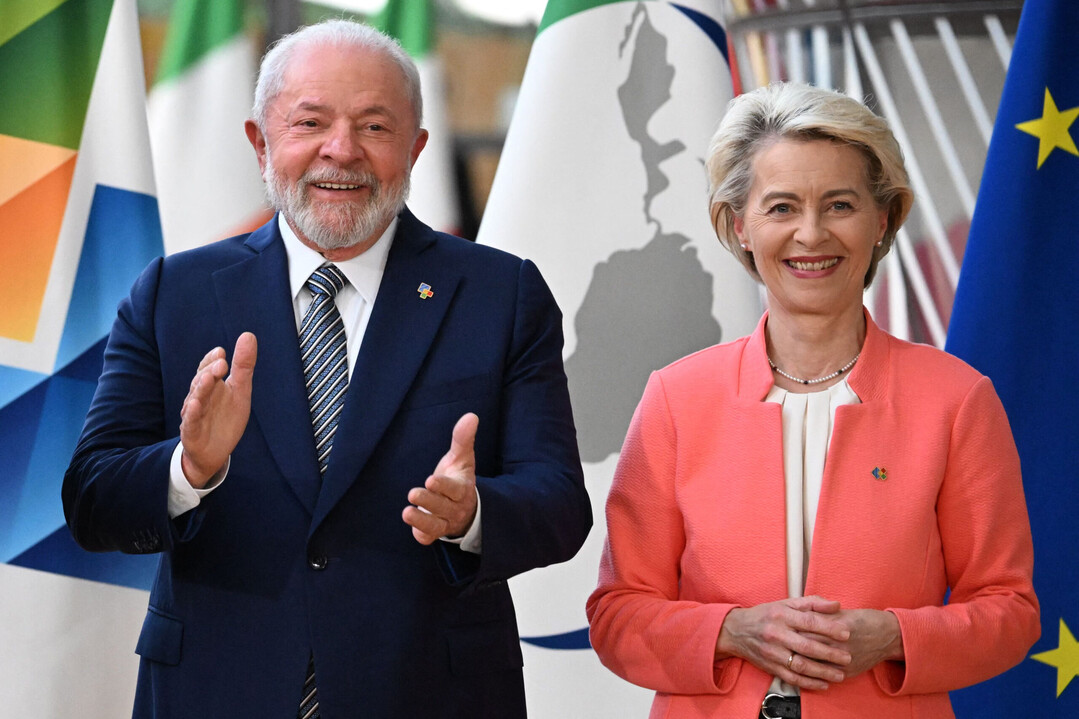
Brazil has expressed optimism regarding the ratification of the free trade agreement (FTA) between the European Union (EU) and Mercosur (Southern Common Market) amidst the escalating trade conflict between the United States and China.
Jorge Viana, president of the Brazilian Trade and Investment Promotion Agency (ApexBrasil), stated in a recent interview with Euronews that "the current situation where the United States is raising tariffs globally could work in favor of the EU-Mercosur agreement." He added, "In this hostile trade environment that the world is facing, we can work together to improve the implementation of the agreement."
The EU and Mercosur reached a political agreement in December last year to create a vast free trade area encompassing 750 million people and approximately one-fifth of the global economy. However, the agreement requires ratification by EU member states to come into effect.
Some EU member states, including France, are opposing the agreement, citing concerns about unfair competition from Mercosur's agricultural exports and the environmental standards of Mercosur countries.
In response, Viana emphasized, "The current situation is clear. The Trump administration is undermining free trade and multilateralism, and all countries need to adapt to this." He warned, "Europe exports more than 600 billion dollars worth of goods to the United States. If a tariff of around 20% is imposed on these exports, it will seriously impact the European agricultural, industrial, and manufacturing sectors."
Regarding France's demand for a so-called "mirror clause," which would require Mercosur agricultural imports to meet the same production standards applied to EU farmers, Viana countered, "Brazil's production is tropical-based, while Europe's is temperate-based. The climate structure itself is very different, making it difficult to apply the same standards."
He acknowledged that food production is a sensitive issue but added that it "can be resolved through dialogue and cooperation."
Brazil also hopes to export renewable energy to Europe, in addition to key raw materials. In the industrial sector, Brazilian aerospace company Embraer, which already operates a factory in Portugal, "will invest billions of dollars in the production of aircraft parts within Europe," Viana stated.
Within the EU, proponents of the Mercosur agreement argue that it is essential to counter the growing influence of China.
Viana acknowledged that "China's influence across the entire South American continent is a clear reality," but stressed, "Europe is our priority. China is Brazil's largest trading partner in quantitative terms, but not in qualitative terms."
Despite Brazil's optimistic outlook, there are still many challenges to overcome before the EU-Mercosur agreement is finally ratified. In particular, it will be necessary to address the concerns of EU member states regarding environmental and agricultural standards, and to secure persuasion and compromise considering the domestic political situations of each country. However, the external factor of increasing US protectionism is making the need for an agreement more urgent for both the EU and Mercosur, raising hopes that the agreement may indeed come to fruition soon, as Brazil anticipates.
[Copyright (c) Global Economic Times. All Rights Reserved.]






























